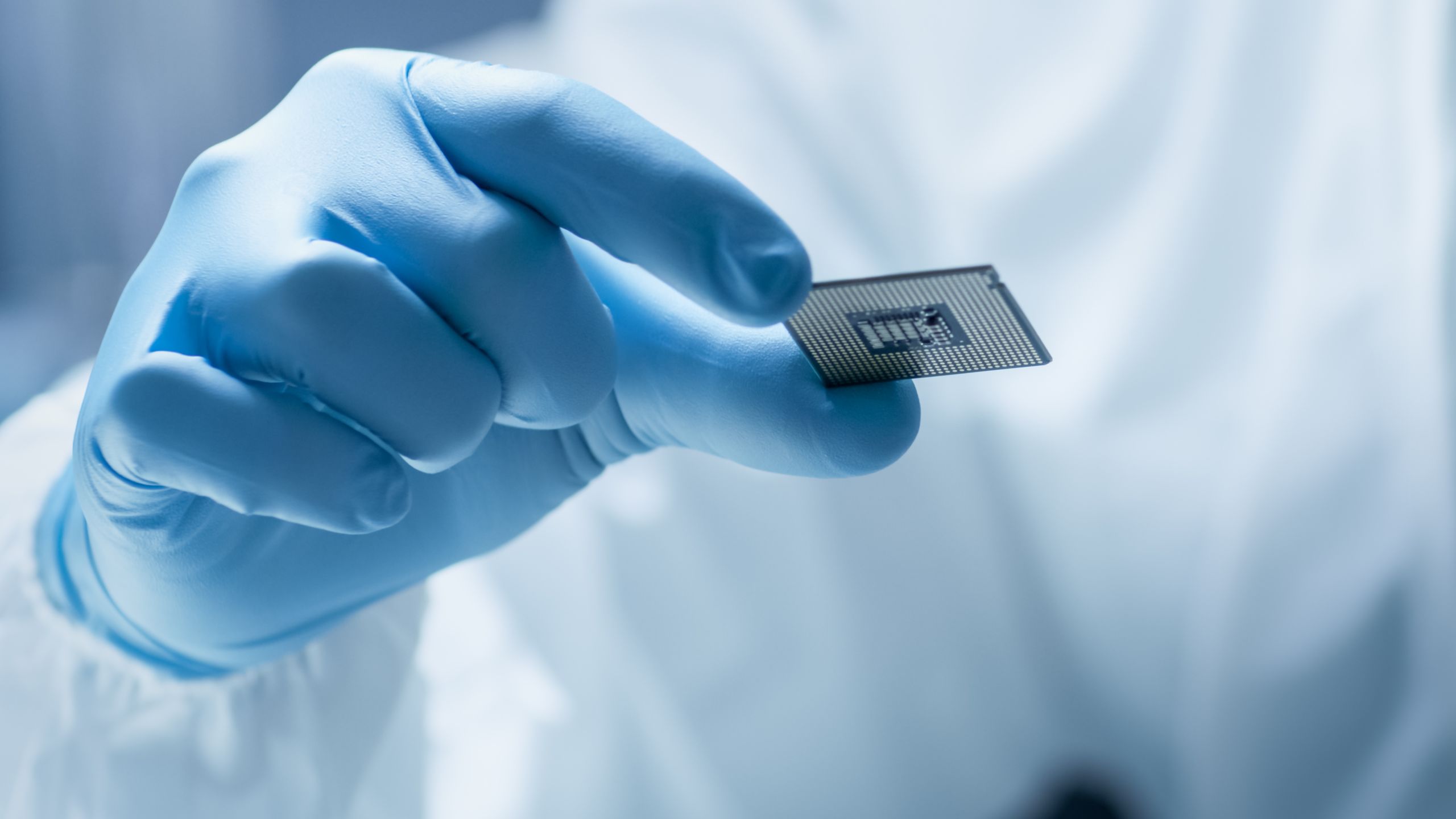Transforming oil analysis with a lab-on-a-chip
Cutting-edge technology reduces downtime and costs by allowing companies to analyse oil samples on site.

In industrial sectors such as oil and gas, maritime, manufacturing and renewables, it’s important that companies can monitor the operating condition of their equipment. Heavy machinery such as diesel engines, compressors, pumps and turbines need lubricating oil to reduce friction between components, and this oil is vital for safe and efficient operations.


But for most companies, the only way to monitor the condition of their machinery is to take an oil sample every three months and send it to a laboratory for testing. This is a particularly time-consuming process when equipment is located offshore or in remote locations, and can cause delays in identifying any maintenance issues, which often results in unexpected and costly downtime.
Revolutionising the process
In 2016, PhD student, Rotimi Alabi and Dr Stephen Bowden from the University of Aberdeen identified that this was a huge challenge faced by many organisations and set out to devise a new, more effective methodology that could revolutionise the process. After many months of research into oil analysis and microfluidics, Rotimi founded his start-up company, RAB-Microfluidics, in collaboration with Professor John Parnell and Dr Stephen Bowden.
As Managing Director, Rotimi has led a team to develop cutting-edge technology which will allow companies to analyse oil samples on site. By removing the need to send samples back to labs onshore, the technology has the potential to offer huge cost and time savings across a wide range of industries.
Small but powerful microfluidics technology
The team designed a 22mm by 15mm glass chip which separates oil into microchannels within the glass. The chip is then analysed in the Microfluidic ATOM – a 30mm by 20mm portable laboratory also designed by the company.
This small but powerful ‘lab-on-a-chip’ technology offers organisations a quick and easy way to check the condition of oil and the ability to regularly monitor the performance levels of their equipment.

Explaining the benefits of the technology, Rotimi said: “Taking an oil sample every three months, sending it to a lab and waiting weeks for results is currently the only way for companies to test and analyse the condition of lubricating oil, which is crucial for machinery to operate effectively. I founded the company based on a belief that we could revolutionise this process by developing a more dynamic methodology for testing and analysis.
“By bringing the lab to the equipment, we’ve transformed a time-consuming and costly procedure into a quick, mobile process that’s driven by the needs of customers. We hope that this technology will encourage organisations to analyse data regularly, allowing them to predict potential equipment failure issues before they occur, and preventing unexpected and unnecessary downtime.”
Award-winning research
In 2018, RAB-Microfluidics won a £60,000 prize at the Scottish EDGE Awards as well as an additional £60,000 for the BP TechX Technology Award as part of the Oil and Gas Technology Centre’s TechX Pioneers Programme. To date, the company has raised £1.1million of funding from grants and prizes, allowing development of prototypes which are currently patent pending.


“Currently measured at Technology Readiness Level 5, our products have been tested in the lab and are being prepared for ‘real-world’ environment testing.
We’ve been working with a number of companies including Maersk, BP and Repsol to coordinate pilot trials which will take place towards the end of 2019 within the wind, maritime and oil and gas sectors, and I’m looking forward to seeing the results of my PhD research making a positive impact on these industries.”

Impact
- Technology has the potential to make oil analysis one thousand times faster and ten times cheaper than current methods
- Quicker and more regular analysis could detect early signs of equipment failure
- Oilfield equipment downtime and maintenance costs would be significantly reduced


